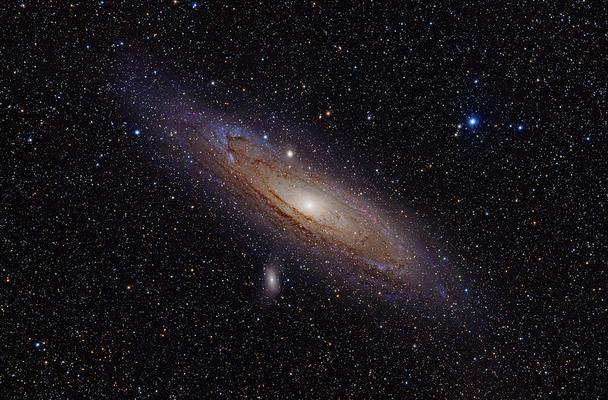Do I need to get a textbook?
No, we are using the OpenStax Astronomy textbook that we have built into our Edge EdX site.

This course introduces students to the components of the Universe beyond the solar system: the stars, galaxies, and the Universe as a whole.
You cannot get credit for this course in the Faculties of Science or Applied Science. No background in science or mathematics is required.
The dates on the right are for the current term. You can explore the course now by enrolling with the button above. Remember to get credit you have to sign up on the UBC SSC as well.
This course will be of interest to those who want to broaden their understanding about astronomy and the Universe. This course is suitable for the non-science student who wants a survey of astronomy.
Students don't have to have any previous scientific background. The course is generally not open to first-year students. This course provides a 3-credit senior science elective that may fulfill certain Arts degree program requirements.
If you have just completed your first year and would like to enroll in the summer course but are having trouble, please contact Dr. Heyl (heyl@phas.ubc.ca).
By the end of this course, you should be able to:
The requirements for this course (the basis for your course grade) are:
In addition, you must PASS THE FINAL EXAMINATION with an exam mark of at least 50%.
We are hosting this course on Edge.EdX.Org, a comphensive platform for learning online. You will interact with your fellow students, teaching assistants and the instructor through the Edge discussion forums. You can also arrange in-person meetings with the course personnel and video conference meetings too. There are activities for you to build your knowledge on Edge as well as a video series to augment what you are reading. We think you will have a lot of fun.
You will log onto edge.edx.org using your UBC CWL by clicking the register button above. edge.edx.org is hosted on servers in the US. When you login with your CWL, UBC does not share any traceable data about you with edX. However, edX does require you to create an account on their servers. While edX maintains its own privacy policies, since UBC cannot guarantee security of your private details on US servers, it is permissible to use a pseudonym to protect your privacy if you have concerns.
No, we are using the OpenStax Astronomy textbook that we have built into our Edge EdX site.
We will review the math that you need to use in the course. The focus is on the concepts and how to use simple math to understand the Universe. Bascially you will have to be comfortable with adding and multiplying one-digit numbers, and you can always use a calculator.
We will teach you the scientific concepts that you will need for the rest of the course right at the beginning before we set out to explore the Universe, so you don't have to remember high-school science at all.
The course is divided in six modules. In each module there are several lessons. Each lesson has a reading assignment with key questions and learning goals, lecture notes, some activities to reinforce your learning and videos. Within each module there is a tutoral activity that we will grade so you get feedback from us and a group discussion activity that we hope you will do with your fellow students (if possible). You will assess your fellow students' work using the rubric and sample answers that we provide. Four of the modules have online quizzes as well. At the end there will be a final exam that you can take at UBC or whereever you are.

Jeremy is a professor at the University of British Columbia. His recent research has focussed on compact objects: white dwarfs, neutron stars and black holes. These are the most extreme objects in the universe. Astrophysicists think that they provide the power behind quasars and gamma-ray bursts, the brightest objects in the recent universe.
His team discovered that stars like the Sun lose much of their mass in the final million years of nuclear burning, not gradually over a billion years as previously thought. He discovered waves in the oceans of neutron stars (yes, neutron stars have oceans) and the fate of our Galaxy after it collides with the Andromeda galaxy (you can see Andromeda in the photo above). Hint: there will be no Milky Way after that happens!